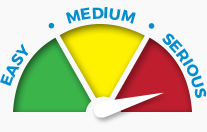IRS Letter CP15B
Why are you receiving this letter?
You received IRS letter CP15B because the IRS has charged you a Trust Fund Recovery Penalty (TFRP) for not paying employment or excise taxes. A business you are associated with did not pay employment or excise taxes it was required to pay. The IRS determined that you were a person responsible for collecting, truthfully accounting for, or paying employment taxes; and you willfully did not make the payments. The IRS has now assessed the tax due to you individually. This Notice is only for the tax periods listed on the Notice. On our Notice example, the letter refers to the tax due for the 3rd quarter of 2013. The IRS will provide a separate letter for each tax period having a balance due. Learn more about Trust Fund Recovery Penalty.

- You can pay in full online at www/irs.gov/payment.
- You owe less than $10,000 and would like to set up an installment agreement. You can call the number on the top right hand corner of your IRS letter and the IRS will give you up to 72 months to pay back the taxes

- Your tax balance is less than $25,000.
- You don’t have unfiled tax returns.
- You are unable to pay back the taxes in full.
- You would like to discuss this with someone not working for the IRS to understand what is going on and the options you have.

- You should not be responsible for payroll taxes owed by a business.
- Your tax balance is greater than $25,000.
- You have unfiled tax returns.
- You are unable to pay back the taxes in full.
- You would like to negotiate down the tax balances.
What should you do?
Read your notice carefully. The Notice explains how much you owe, tax period, and tax form. On our Notice example, the balance is due on Trust Fund Recovery Penalties (Civil Penalties) for the 3rd quarter 2013. Compare the balances according to the IRS with tax return the filed by your business.
If you disagree with this notice, contact the IRS at the telephone number listed at the top right corner of the Notice or our office to discuss your options and appeal rights.
If you agree with this notice, you now have a balance due and owing to the IRS.
What can you expect next?
IRS letter CP15B is considered a tax bill. The IRS asks that you pay the balance due in full. You do have options. If the tax bill is left unpaid, the IRS may move forward with filing Federal Tax Liens and/or Tax Levies on your wages, bank accounts, state & federal tax refunds, etc.

